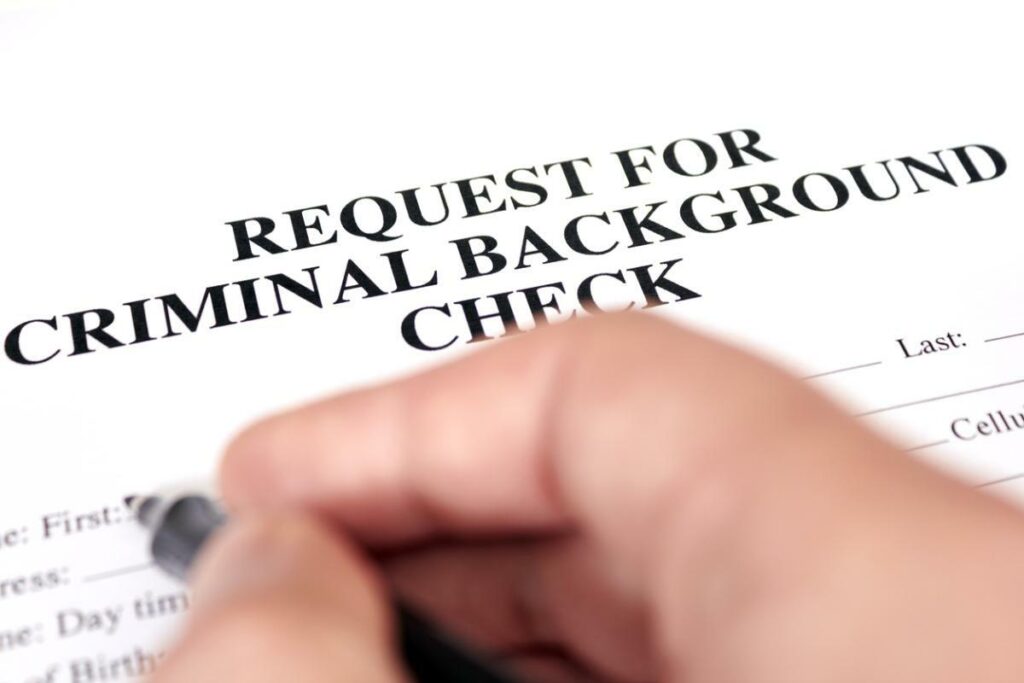Becoming a marriage and family therapist, professional counselor, psychologist, or social worker in the state of Texas is a lengthy process that requires education, training, examination, and meeting certain other requirements. All these steps toward licensing or certification take place through the Texas Behavioral Executive Council (BHEC), the same agency that regulates and monitors these professionals for compliance with applicable laws. If there is any question about whether your criminal history disqualifies for any of these licenses, then you may wish to request a criminal history evaluation letter from BHEC before completing any of these steps.
A professional counselor license defense attorney can assist you through the criminal history evaluation letter process, and with any impediments that you may encounter during the licensing or certification process. They also can help you with any disciplinary proceedings that you may face later as a licensed professional.
Criminal History Evaluation Letters in General
Under 22 Tex. Admin. Code §882.41, the BHEC will provide criminal history evaluation letters in accordance with Chapter 53 of the Texas Occupations Code. An individual may request a criminal history evaluation letter from the BHEC if they are planning on enrolling in or are enrolled in an educational program preparing them for one of the licenses that the BHEC offers. The BHEC offers licenses for different levels of marriage and family therapists, professional counselors, psychologists, and social workers. Individuals may wish to request criminal history evaluation letters if they have reason to believe that they might be ineligible for the license they are seeking due to a conviction or deferred adjudication for a felony or misdemeanor criminal offense.
Click to contact our professional license defense lawyers today
The Criminal History Evaluation Letter Process
An individual must complete an application form requesting a criminal history evaluation letter and submit it to BHEC, along with a fee and certified copies of court documentation about all criminal offenses that may cause their ineligibility for a license. Individuals are strongly encouraged to also provide three letters of recommendation from people who can attest to their veracity, work ethic, charitable and volunteer efforts, and why they would make positive contributions to society as a mental health care provider.
Once the individual has submitted all this information, they must obtain a fingerprint criminal history record check by emailing BHEC from the following link: Contact Us – Texas Behavioral Health Executive Council and choosing “Fingerprint Criminal History Background Checks” from the dropdown menu.
Once the BHEC receives the request, it has 90 days to provide a written criminal history evaluation letter to the individual. However, it can investigate the request and ask the requesting party to provide more information. In some cases, a more extensive investigation may be required, especially if the individual fails to cooperate with the investigation, which may lead to the process taking more than 90 days.
The criminal history evaluation letter constitutes a ruling by the BHEC on the individual’s eligibility for licensing. The only exception is if there is new or different evidence that the requesting individual did not disclose to the BHEC, or evidence that is not reasonably available at the time it issues a criminal history evaluation letter. In that case, the BHEC’s eligibility determination may change.
Complete a Case Evaluation form now
Factors for Consideration During the Criminal History Evaluation
Under Tex. Occ. Code §53.022, the BHEC must consider the following factors when determining whether a criminal conviction directly relates to the duties and responsibilities of a particular licensed occupation:
- The nature and seriousness of the crime;
- The relationship of the crime to the purposes for requiring a license to engage in the occupation;
- The extent to which a license might offer an opportunity to engage in further criminal activity of the same type as that in which the person previously had been involved;
- The relationship of the crime to the ability or capacity required to perform the duties and discharge the responsibilities of the licensed occupation; and
- Any correlation between the elements of the crime and the duties and responsibilities of a licensed occupation.
Furthermore, under Tex. Occ. Code Ann. §53.023, if the BHEC decides that a criminal conviction directly relates to the duties and responsibilities of a certain licensed occupation, it then must consider the following factors when determining whether to disqualify a person from receiving a license:
- The extent and nature of the person’s past criminal activity;
- The age of the person when the crime was committed;
- The amount of time that has elapsed since the person’s last criminal activity;
- The conduct and work activity of the person before and after the criminal activity;
- Evidence of the person’s rehabilitation or rehabilitative effort while incarcerated or after release;
- Evidence of the person’s compliance with any conditions of community supervision, parole, or mandatory supervision; and
- Other evidence of the person’s fitness, including letters of recommendation.
Get Legal Advice and Defend Your Marriage and Family Therapist License
Barriers to your psychologist license can be devastating, especially when you have worked so hard to reach that point in your career. Likewise, disciplinary proceedings with potentially adverse effects on your career can be devastating. Trying to handle disciplinary proceedings on your own before the BHEC is risky when you have so much at stake. A social worker license defense lawyer at Bertolino LLP can evaluate your situation and determine the best strategy to protect your license. Call us today at (512) 515-9518 or get more information about us online.
Call or text (512) 476-5757 or complete a Case Evaluation form






